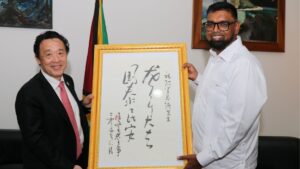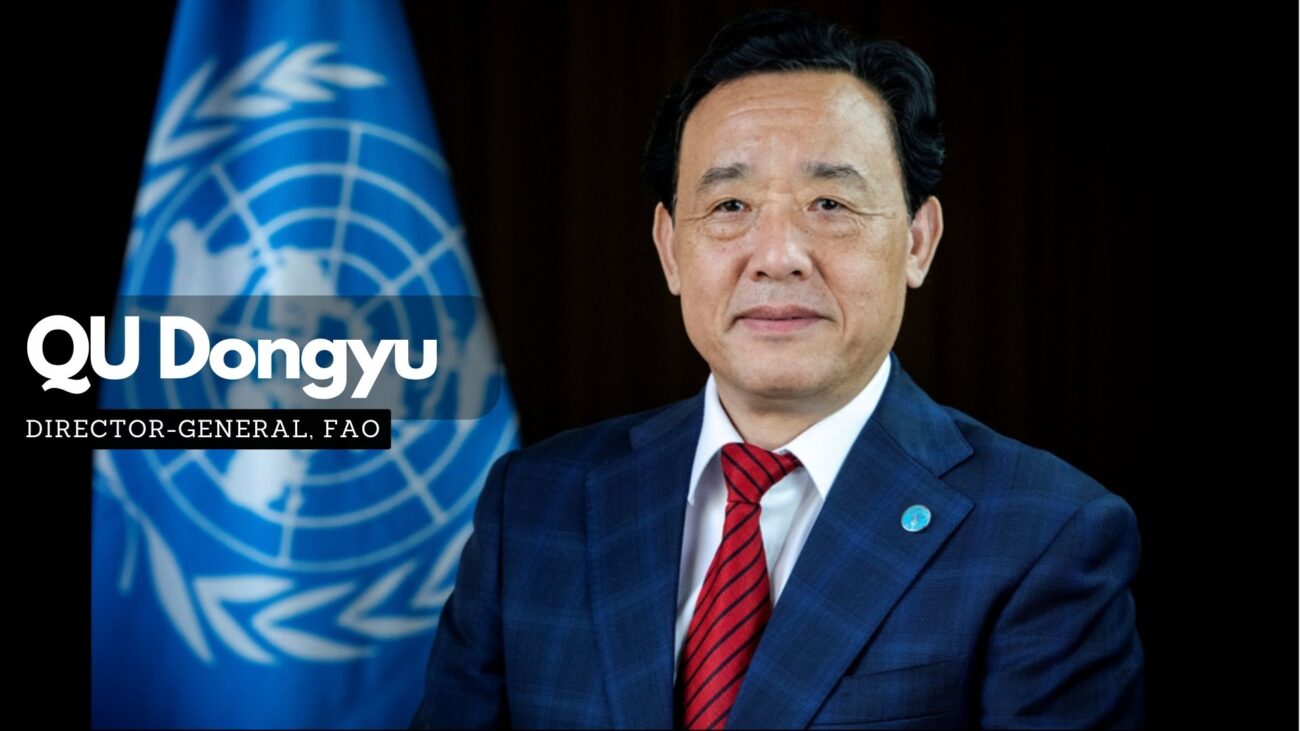Op-Ed Agrifood systems: a path to sustainable development in Latin America and the Caribbean
Every two years, FAO holds a Regional Ministerial Conference in Latin America and the Caribbean, bringing together its 33 Members in the region to monitor progress and address the challenges towards fighting hunger, poverty, malnutrition, and inequalities, and to achieving the transformation of agrifood systems to be more efficient, more inclusive, more resilient and more sustainable.
In Latin America and the Caribbean, FAO’s agrifood systems approach has been effective in supporting countries in accelerating the 2030 Agenda and the Sustainable Development Goals (SDGs).
According to FAO’s latest estimates, the prevalence of undernourishment in the region decreased in 2022 to 6.5 percent, from 7.0 percent in 2021, which means that 2.4 million people are no longer suffering from hunger. However, such progress has occurred in South America (from 7.0 percent to 6.1 percent), while the prevalence of hunger has remained almost the same in Mesoamerica (from 5.0 percent to 5.1 percent). In the Caribbean, undernourishment has risen, from 14.7 percent in 2021 to 16.3 percent in 2022.
These statistics only scratch the surface of the current challenges facing agrifood systems in the region, which include the impacts of the climate crisis, economic disparities, and an over-dependence on commodities.
Although the region is a net food exporter and responsible for 13 percent of global food production, reliance on commodity imports and exports exposes its agrifood systems to macroeconomic volatility and geopolitical instability, which in turn negatively impact food prices and incomes and lead to unfavourable food security and nutrition outcomes.

FAO Director General QU Dongyu and Guyana’s President Irfaan Ali/QU Dongyu
The 38th FAO Regional Ministerial Conference will be held in the Caribbean nation of Guyana from 18 to 21 March 2024. This conference is a significant opportunity for member countries to enhance their individual and collective innovative thinking and build capacity to adapt to the changing landscape of agrifood systems across the region, and beyond, and be prepared for possible future scenarios.
With the engagement of governments and all partners, the conference aims to forge a consensus on tailored action plans for food and agriculture and to uphold the fundamental human right to food in an open, transparent, and inclusive manner.
The experience in Latin America and the Caribbean shows that achieving sustainable agrifood systems requires concerted multi-sectoral efforts. Fighting hunger is an act of collective responsibility, and thanks to a thriving regional integration, tangible results have been achieved. FAO continues to work through relevant international and multilateral fora in the region, and beyond, to continue to highlight the food security agenda and accelerate actions to advance the transformation of agrifood systems.
Ownership and leadership by FAO Members, and collective efforts by all development partners and stakeholders, are critical. Shared vision, foresight, responsibilities, and implementation arrangements are needed to achieve our goals. I would like to emphasize the significance of collaborations and partnerships across the Latin America and the Caribbean region.
In recent years, significant strides have been taken to bring together diverse perspectives and reach a regional consensus that will provide the blueprint for the Organization’s work in the region for the next biennium.
FAO is currently implementing around 400 national, sub-regional, and regional projects in Latin America and the Caribbean that have added millions of households to the agrifood value chain.
Moreover, there is evidence that FAO’s global initiatives, such as the Hand-in-Hand, the 1000 Digital Villages, and the One Country One Priority Product, have positively impacted farmers, especially smallholders, women, youth, Indigenous Peoples and marginalized groups and rural populations.
At the Regional Ministerial Conference, FAO will focus on four interconnected regional priorities reflecting the “four betters” set out in the Organization’s Strategic Framework 2022-31 – better production, better nutrition, a better environment, and a better life, leaving no one behind. These priorities aim to catalyze the transformation of agrifood systems by enhancing efficiency, inclusivity, and sustainability in production; eradicating hunger and advancing food security and nutrition; promoting the sustainable management of natural resources and adaptation to the climate crisis; and addressing inequalities, poverty, and fostering resilience.

Guyana Rice Development Board applying technological innovation to better production/QU Dongyu
The comprehensive Strategic Framework for the next decade provides us with an opportunity to take a wide-ranging look at our agrifood systems, identify areas that need improvement, and take appropriate actions. Members benefit from FAO’s technical expertise, assistance, and support through its headquarters, as well as regional, subregional, and country offices, to ensure effective implementation in support of the 2030 Agenda and the SDGs. My focus is on strengthening FAO’s country offices to maximize their impact on the ground and support the work of Members at the country level.
Our main goal for the region remains clear: to improve food production and ensure that everyone has access to nutritious food, while protecting natural resources and reducing inequalities, poverty, and hunger. We must produce more with less. To this end, we need to leverage the potential of cooperation, trade, investment and the utilization of innovation and technology within the region and with other regions.
At FAO, we have realigned and refocused our efforts towards supporting Members in accelerating the transformation needed. We have adopted agile operating strategies, offered tailored and timely data and analytical support, enhanced our engagement with governments, the private sector, civil society, academia, and international financial institutions, and have established transformative partnerships with all key players. The reformed and restructured FAO is now better equipped, fit-for-purpose and already working towards this transformation for the benefit of people, planet, and prosperity.
By QU Dongyu, Director-General, Food and Agriculture Organization of the United Nations






Facebook Comments